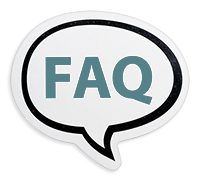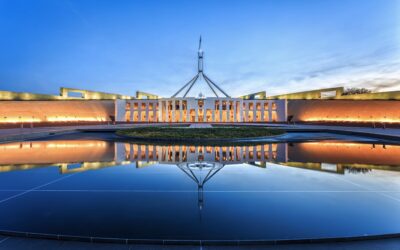When it comes to owning a home, one of the big decisions you’ll face is whether to build a new home or buy an established one.
Each option has its own set of pros and cons, and the best choice depends on your personal situation, financial goals, and lifestyle.
Let’s break down the key factors, from stamp duty differences to timing, cost, lifestyle, and the reality of paying rent while building.
BUILDING A NEW HOME | PROS:
Personalised Design: Building new means you get to create a home that’s truly yours, from the layout to the finishes. It’s a chance to design a space that fits your lifestyle perfectly.
Modern Living: New homes come with the latest features and energy-efficient technologies, which can mean lower utility bills and a more comfortable living environment.
Move-in Ready: There’s no need for immediate renovations or repairs when you build new, saving you time and hassle.
Government Incentives: As a first home buyer in Australia, you might be eligible for grants and incentives, like the First Home Owner Grant (FHOG), which can help with the cost of building.
Stamp Duty Savings: One of the standout benefits of building a new home is the potential to save on stamp duty. You’ll only pay stamp duty on the land, not the total house and land package, which can make a big difference to your budget.
BUILDING A NEW HOME | CONS:
Longer Wait: Building a home isn’t quick – it can take several months or even longer, depending on your build. If you’re in a hurry to move, this might be a deal-breaker.
Paying Rent While You Build: While your new home is under construction, you’ll still need somewhere to live, which might mean paying rent or servicing a mortgage at the same time. This can stretch your finances.
Additional Costs: The costs of building can add up. On top of the construction itself, there are things like landscaping, fencing, and getting essential services connected that you’ll need to budget for.
Liaising with Builders: It’s important to consider the risks involved when dealing with builders. Finding the right builder is crucial, as the quality of your home depends heavily on their expertise and reliability. There have been instances where homeowners have faced issues with substandard workmanship or unexpected delays, which can be both frustrating and costly. Ensuring your builder is financially strong, has a solid reputation, transparent communication, and a track record of delivering quality work on time is essential. This usually means that the cheapest builder is not the best.
Cost: Construction costs have risen significantly, especially since the COVID-19 pandemic. This increase is due to a variety of factors, including supply chain disruptions, higher material costs, and labour shortages. These factors not only impact the overall cost but can also affect the timeline of your build, making it even more important to have a clear contract and contingency plans in place.
Location Choices: New builds are often in developing areas or estates, which might mean a longer commute or distance from established amenities like schools and shops.
BUYING AN ESTABLISHED HOME | PROS:
Ready to Move In: One of the biggest advantages of buying an established home is that you can move in almost straight away, which is great if you need a new place quickly.
Established Neighbourhoods: Older homes are usually in areas with mature infrastructure, meaning you’re likely to be closer to schools, shops, and public transport.
Potential to Add Value: Buying an established home gives you the opportunity to renovate or update the property over time, potentially adding value to your investment.
No Overlapping Costs: When you buy an established home, you won’t have the financial pressure of paying rent while waiting for your home to be built.
BUYING AN ESTABLISHED HOME | CONS:
Higher Stamp Duty: When buying an established home, you’ll pay stamp duty on the full purchase price, which can be a significant cost, especially in higher-value areas.
Upfront Renovations: Established homes might need repairs or renovations sooner than you’d like, adding to the overall cost and workload.
Less Flexibility: With an established home, you’re limited by the existing layout and design, unless you’re up for a renovation project.
Older Infrastructure: Established homes may not be as energy-efficient as new builds, which could mean higher running costs and a less sustainable living environment.
COST CONSIDERATIONS:
Stamp Duty: Building a new home generally offers lower stamp duty costs since it’s only applied to the land. In contrast, buying an established home means paying stamp duty on the entire purchase price.
Ongoing Costs: New homes are likely to have lower maintenance and running costs, thanks to modern construction and energy-efficient features, while older homes might require more upkeep.
Financing: Building a home might require a construction loan, which can have different terms compared to a standard mortgage for an established property.
LIFESTYLE AND TIMING CONSIDERATIONS:
Lifestyle: Think about what’s important to you. If you value living in a community with established amenities, buying an existing home could be the way to go. But if you want a modern space that’s built just for you, building new might be the better option.
Timing: If you’re in a rush to move, buying an established home is the faster option. However, if you have the time to wait, building a new home could be worth it for the customisation and modern features.
CONCLUSION
Choosing between building a new home and buying an established one is a big decision, and it’s all about what works best for you. Building new offers the chance to create a home that’s tailored to your needs, with potential stamp duty savings and the latest features. But it also comes with the challenge of waiting for construction to finish and possibly paying rent in the meantime. Buying an established home offers immediate occupancy and the benefits of living in a well-established neighbourhood, though it may come with higher stamp duty and potential renovation costs.
At Rayne Finance, we’re here to help you weigh up these options and find the right solution for your situation. Whether you’re leaning towards building or buying, we can guide you through the finance process and help you make your homeownership dreams a reality.
Licensing statement: Rayne Finance ABN [70 605 100 838] is authorised under LMG Broker Services Pty Ltd Australian Credit Licence 517192. Disclaimer: (1) As with any financial scenario there are risks involved. This information provides an overview or summary only and it should not be considered a comprehensive analysis. You should, before acting in reliance upon this information, seek independent professional lending or taxation advice as appropriate and specific to your objectives, financial circumstances or needs. This publication is provided on the terms and understanding that: (2) LMG Broker Services Pty Ltd, Rayne Finance (Seed Lending Pty Ltd) and the authors, consultants and editors are not responsible for the results of any actions taken on the basis of information in this publication, nor for any error in or omission from this publication. (3) LMG Broker Services Pty Ltd, Rayne Finance (Seed Lending Pty Ltd) and the authors, consultants and editors, expressly disclaim all and any liability and responsibility to the maximum extent permitted by the law to any person, whether a purchaser or reader of this publication or not, in respect of anything, and of the consequences of anything, done or omitted to be done by any such person in reliance, whether wholly or partially, upon the whole or any part of the contents of this publication.
Explore other FAQs and Facts
7 steps to increase your borrowing power
Borrowing power can vary significantly based on financial circumstances and lender choice. While two friends with similar profiles might get approved for different amounts, you can take steps to potentially increase your borrowing power. These steps include reducing expenses, increasing income, reducing debt, lowering credit card limits, improving your credit score, saving a larger deposit, and consulting a broker.
How redraw facilities and offset accounts can save you money
Offset accounts and redraw facilities both reduce the interest on your home loan by applying extra funds. Redraw facilities lower interest while providing conditional access to your money. Offset accounts, acting like savings accounts, offer easier access and higher interest savings, despite potential fees. Choose based on your need for fund accessibility and flexibility.
Federal Budget 24/25 – what does it mean for you?
Discovering the impact of the 2024/2025 Federal Budget is vital in navigating the current economic landscape. With a focus on addressing the cost-of-living crisis and bolstering the construction sector, measures such as infrastructure investment, rent assistance, and tax cuts aim to alleviate financial burdens and stimulate growth.
How a broker guides your way to owning your first home
Dreaming of your first home? A mortgage broker can be your guiding light. From assessing your borrowing capacity to breaking down costs and exploring deposit options, they make the journey smoother. With their expertise, owning your dream home in Australia becomes not just a dream, but a tangible goal.
5 things to keep in mind before refinancing
Considering refinancing your home loan? While securing the lowest interest rate is tempting, it’s vital to assess beyond that. Lenders vary in serviceability criteria, fees, turnaround times, and lending criteria. Additionally, explore promotions and consider restructuring your loan for optimal outcomes. Learn 5 key factors to save time and money.
How to calculate your equity
If you’ve owned your home for some time, you likely have built up equity—a valuable asset. Equity represents the difference between your home’s value and what you owe on your mortgage. Understanding this figure can empower you financially and open up opportunities for leveraging your home’s value.
7 ways to maximise your returns as a property investor
If you’re looking to maximise returns as a property investor, strategic decisions are key. From choosing the right location to savvy renovations, each step impacts your bottom line. And don’t forget about refinancing—regularly reviewing your home loan could unlock significant savings.
March cash rate held – why are buyers feeling more confident?
Following the Reserve Bank of Australia’s decision to keep the cash rate steady at 4.35%, there’s speculation about future cuts amid economic indicators showing weakness. However, rising buyer confidence and strong property growth, especially in housing, continue to drive the market forward.
When was your last home loan health check?
Is your home loan still serving you as it should? Over time, circumstances shift, potentially rendering your loan less than ideal. A home loan health check, conducted by your finance broker, ensures your loan remains competitive and aligned with your needs. It’s a stress-free process, offering potential savings and improved features, all at no cost to you.
What happens when your fixed rate term ends?
Fixed rate terms, typically lasting one to five years, define your loan’s interest stability. As this period concludes, your loan may shift to a variable rate unless you opt otherwise. Prepare by discussing potential rates and options with your mortgage broker. Consider repricing or refinancing for better terms, mindful of associated costs.














